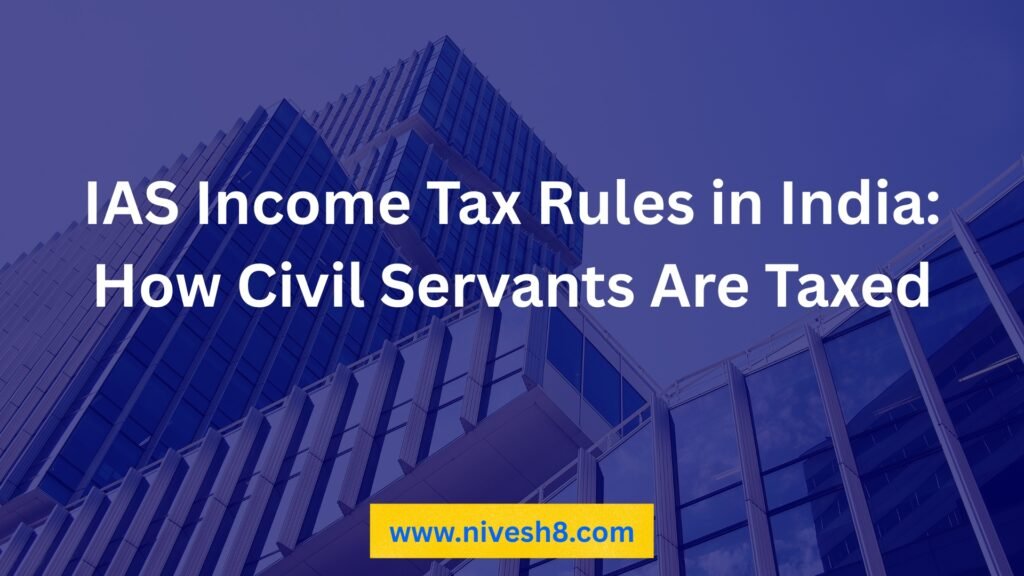Many people find great interest in how government officials—especially IAS officials—pay taxes. Does their pay come tax-free? Are exemptions from particular rules applied here? We will cover all you need to know about IAS income tax in India in this blog.
IAS Officer: Who are they?
Indian Administrative Service is IAS. Selected by the UPSC test, IAS officials serve the Indian government in an important administrative capacity. They earn pay, allowances, and other perks.
Is the IAS salary taxable?
Sure. Under the Income Tax Act, an IAS officer’s entire pay is taxable, much as any other regular citizen. Regarding IAS income tax, there is no specific exemption for IAS officials.
How is an IAS Officer’s pay structure set?
The 7th Pay Commission pays IAS officials according to their rank. Starting at ₹56,101 for entry-level, the pay comprises basic pay.
- DA, or degree of allowance
- House Rent Allowance (HRA)
- Transfer Allowance
- Additional advantages including official car use and government accommodation
Taxable as opposed to non-taxable income:
- Taxable:
- Basic Pay
- DA
- HRA (unless residing in government accommodation)
- Particular allowances
- Basic Pay
- Non-taxable:
- Medical reimbursement (up to a cap)
- Official residence and car (considered as needs, taxed should they be used for personal use)
- Medical reimbursement (up to a cap)
IAS Income Tax Calculation: How is it done?
Added under the head “Income from Salary” is salary.
- Deductibles including Standard Deduction (₹50,000), 80C, 80D, HRA exemption
- Calculated final tax depends on the relevant slab rate.
For instance, say an IAS officer makes ₹12 lakh annually. Net taxable income could drop to ₹10 lakh following deductions, including 80C and HRA.
Tax then is computed using slabs:
- Nil for ₹0 – ₹2.5 lakh
- ₹2.5– ₹5 lakh: 5%
- ₹5 – ₹10 lakh: 20%
- Higher than ₹10 lakh: 30%
Do IAS officers file ITRs?
Indeed, much as other taxpayers, IAS officials have to submit Income Tax Returns (ITR) annually. As part of transparency requirements, many also publicly declare assets and liabilities.
Common Deductions Available:
- 80C: LIC, PPF, ELSS, etc.
- 80D: Premium for Health Insurance
- HRA exemption: should one be renting a house
- Standard deduction: ₹50,000
- NPS (National Pension Scheme) payments
False beliefs about IAS income tax: “IAS officers don’t pay tax”
❌ “All perks are tax-free” – False; perks might be taxable.
Under tax law, they are handled like any other salaried employee.



